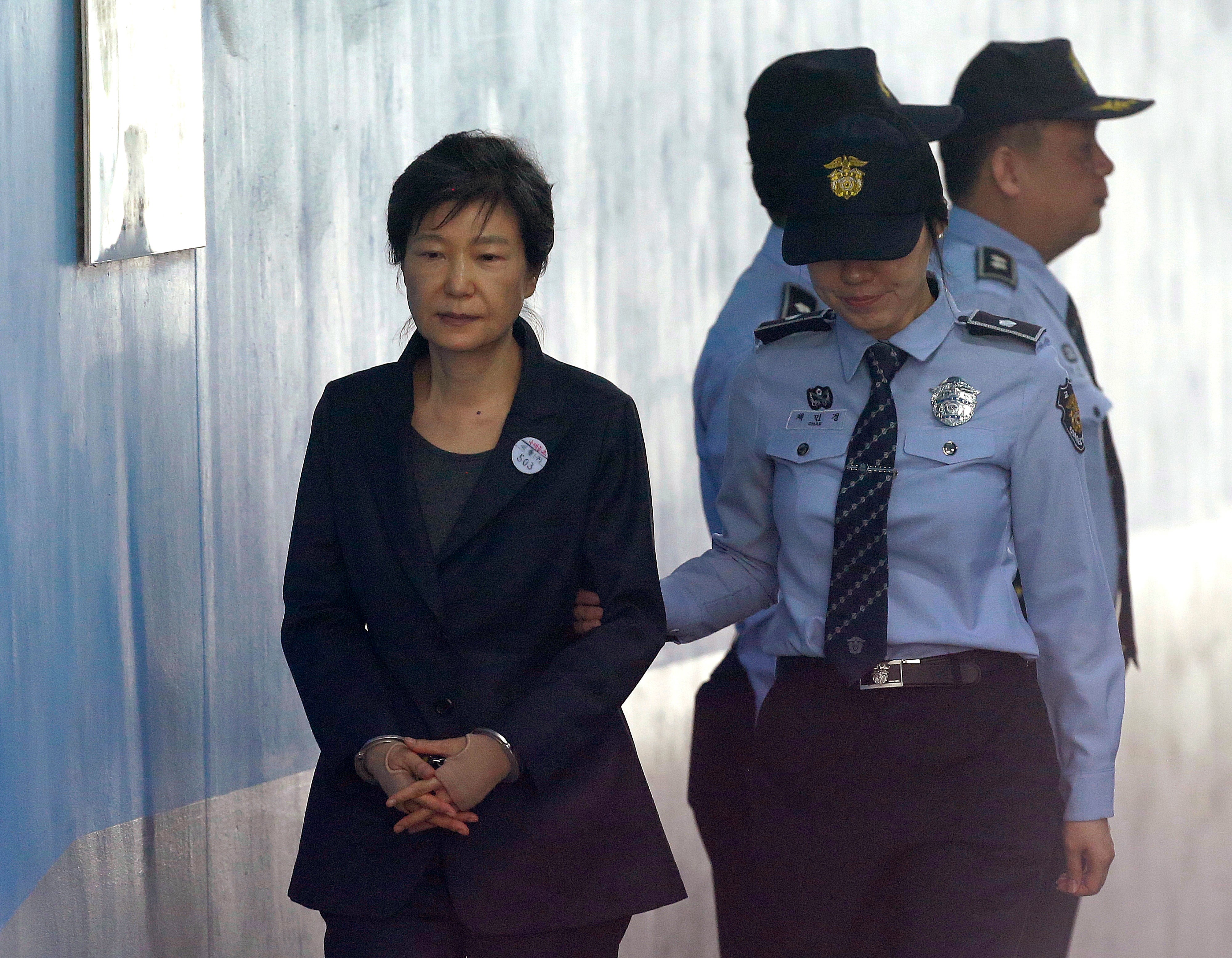S. Korean court confirms 20-year term for ex-president Park
South Korea’s Supreme Court has upheld a 20-year prison term for former President Park Geun-hye over bribery and other crimes as it wrapped up a historic corruption case that marked a striking fall from grace for the country’s first female leader and conservative icon

Your support helps us to tell the story
From reproductive rights to climate change to Big Tech, The Independent is on the ground when the story is developing. Whether it's investigating the financials of Elon Musk's pro-Trump PAC or producing our latest documentary, 'The A Word', which shines a light on the American women fighting for reproductive rights, we know how important it is to parse out the facts from the messaging.
At such a critical moment in US history, we need reporters on the ground. Your donation allows us to keep sending journalists to speak to both sides of the story.
The Independent is trusted by Americans across the entire political spectrum. And unlike many other quality news outlets, we choose not to lock Americans out of our reporting and analysis with paywalls. We believe quality journalism should be available to everyone, paid for by those who can afford it.
Your support makes all the difference.South Korea’s Supreme Court on Thursday upheld a 20-year prison term for former President Park Geun-hye over bribery and other crimes as it wrapped up a historic corruption case that marked a striking fall from grace for the country’s first female leader and conservative icon.
The ruling means Park, who was ousted from office and arrested in 2017, potentially serves a combined 22 years behind bars, following a separate conviction for illegally meddling in her party’s candidate nominations ahead of parliamentary elections in 2016.
But the finalizing of her prison term also makes her eligible for a special presidential pardon, a looming possibility as the country’s deeply-split electorate approaches the presidential election in March next year.
President Moon Jae-in, a liberal who won the presidential by-election following Park’s removal, has yet to directly address the possibility of freeing his predecessor.
But at least one prominent member of Moon’s Democratic Party, chairman Lee Nak-yon, has raised the idea of pardoning Park and another imprisoned former president, Lee Myung-bak, who’s serving a 17-year term over his own corruption charges, as a gesture for “national unity.”
Park, 68, has described herself a victim of political revenge. She has refused to attend her trials since October 2017 and didn’t attend Thursday’s ruling.
The office of Moon, who has recently seen his approval rating sink to new lows over economic problems, political scandals and rising coronavirus infections, didn’t have an immediate response to the ruling.
Park, the daughter of slain military dictator Park Chung-hee, was convicted of colluding with her longtime confidante, Choi Soon-sil, to take millions of dollars in bribes and extortion from some of the country’s largest business groups, including Samsung, while she was in office from 2013 to 2016.
She was also indicted on charges of accepting illegally monthly funds from her spy chiefs that were diverted out of the agency’s budget.
Following weekslong protests by millions, Park was impeached by lawmakers in December 2016 and officially removed from office in March 2017 after the Constitutional Court upheld the impeachment.
Park originally faced a prison term of more than 30 years before the Supreme Court sent her cases back to a lower court in 2019.
The Seoul High Court in 2018 had sentenced her to 25 years in prison after reviewing her of bribery, extortion, abuse of power and other convictions together.
But the Supreme Court in October 2019 ordered the Seoul High Court to deal with Park’s bribery charge separately from other charges, based on a law requiring so for cases involving a president or other elected officials, even when the alleged crimes are committed together.
The High Court had handed Park a five-year term over the spy fund charges in July 2019, but the Supreme Court also ordered a retrial on the case in November.
Prosecutors appealed after the Seoul High Court handed Park a 20-year term in July last year over the charges.